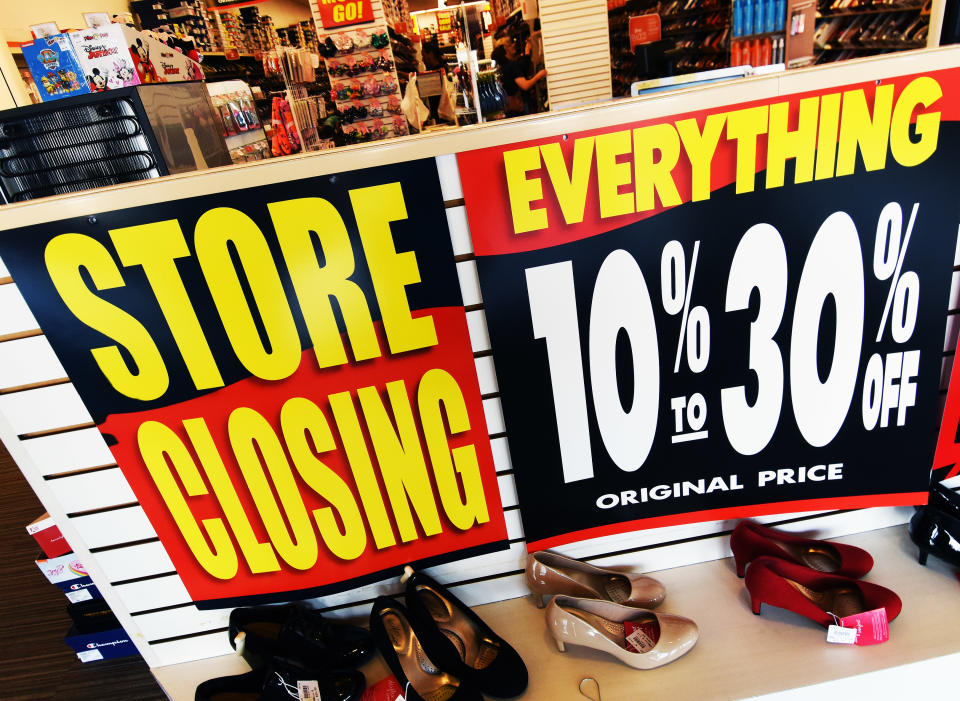The demise of brick-and-mortar retail is about more than Amazon
From riches to rags, the last decade has not been kind to the retail industry. Toys ‘R’ Us, RadioShack, Payless Shoes are just a few of the names which have fallen victim to global e-commerce, with a lot more expected to die heading into the 2020s.
“I think it's been a bit of a double-edged sword,” Michael Brown, a partner at A.T. Kearney, told Yahoo Finance’s On the Move. “E-commerce has really come and changed the way consumers shop, but it's actually been just the transition that we've seen in retail over the years.”
A lot of this evolution is attributable Amazon (AMZN), the leading online marketplace in the U.S. But the challenges brought by e-commerce disruption are a bit more nuanced, Brown said.
“Online sales are 10% of all retail sales. Amazon is about 50% of that,” Kearney noted. “So it's not only Amazon. I think the other phenomenon people overlook is fragmentation. If you look at all the online digitally native companies, they're taking a percentage here, a percentage there from all the big retailers. And when 20 or 30 of them take a percentage point away from you, you just lost all your profit margin, and that's a challenge.”
In other words, while Amazon might offer great deals, other online retailers may offer even better deals for certain products. And so the competition among online retailers is only intensifying the pressure on brick-and-mortar retailers to cut prices.

This year has been a record for store closures. U.S. retailers announced plans to shut doors at more than 9,300 locations. That’s up 50% from 2018, according to Coresight. This year also included bankruptcy announcements from Sears, Forever 21 and Payless. Brown forecasts a transformation coming for some big name retailers. He predicts Macy’s (M) will transition to become more of a discount retailer in the next few years.
“Macy's is rapidly transitioning to being an off-price retailer, to be the next TJ Maxx (TJX) or Ross Stores (ROST) as they open up their backstage stores.” Brown said. “There's a rough time ahead for all the department stores. And the names like JCPenney (JCP), Sears, are on the forefront of that.”
While store closures are expected to continue, Brown expects online retailers will actually make their way to physical spaces over the next few years.
“Anyone who's been a digitally native retailer is going to have to have 300 to 400 stores to reach scale,” he said. “Shopping online is not an easy experience— the store is easier to shop.”
Valentina Caval is a producer with Yahoo Finance.
Related:
20 businesses that died in the 2010s
J.C. Penney could be doomed: former top retail CEO
Abercrombie & Fitch faces one of its biggest opportunities in 2020
Read the latest financial and business news from Yahoo Finance
Follow Yahoo Finance on Twitter, Facebook, Instagram, Flipboard, SmartNews, LinkedIn, YouTube, and reddit.